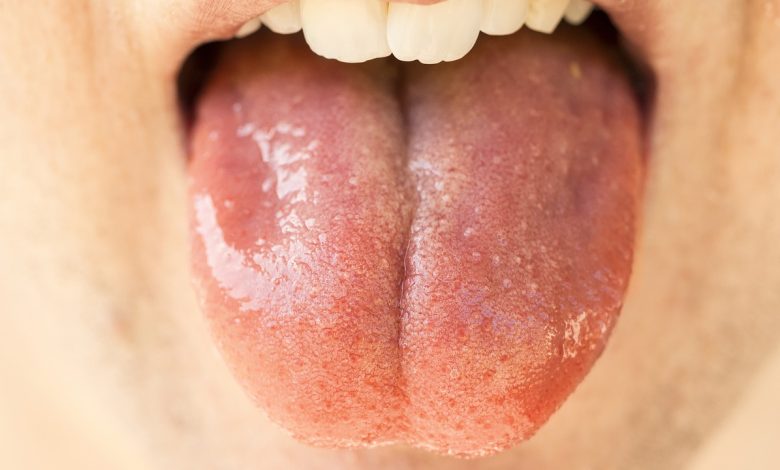List Of Drugs That Cause Metallic Taste

A drug-induced metallic taste, also known as drug-induced dysgeusia, refers to a taste alteration in the mouth that occurs as a side effect of taking certain medications. This taste disturbance typically manifests as a metallic or bitter taste in the mouth and can be unpleasant or uncomfortable for the affected individual. The exact cause of drug-induced metallic taste is not always well understood, but it may result from the drug’s interaction with taste receptors in the mouth or other sensory processes.
Several medications have been reported to cause metallic taste as a side effect. These can include certain antibiotics, antifungals, chemotherapy drugs, weight loss medications and various other prescription or over-the-counter medications. The severity and duration of this side effect can vary from person to person and may depend on the specific drug and individual sensitivities.
Symptoms of drug-induced metallic taste may include:
1. Metallic or Bitter Taste: The most common symptom is the perception of a metallic or bitter taste in the mouth. This taste can be persistent and unpleasant.
2. Altered Taste Sensation: Some individuals may also experience a general alteration in their sense of taste, making other foods and beverages taste different than usual.
3. Dry Mouth: Drug-induced metallic taste can sometimes be accompanied by dry mouth or increased thirst.
4. Loss of Appetite: The unpleasant taste may lead to a reduced appetite or avoidance of certain foods.
5. Nausea: In some cases, the metallic taste may trigger nausea or an upset stomach.
6. Difficulty Swallowing: It’s possible for the metallic taste to cause discomfort or difficulty in swallowing.
7. General Discomfort: Individuals may find the metallic taste to be a source of discomfort and annoyance.
It’s important to note that the severity and duration of these symptoms can vary from person to person, and they may depend on the specific drug causing the side effect. If you experience any of these symptoms while taking a medication, it’s advisable to consult with your healthcare provider. They can evaluate the situation, potentially adjust your medication or provide guidance on managing the metallic taste.
List Of Drugs That Can Cause Metallic Taste
The list of drugs that can cause metallic taste include:
1. Antibiotics:
• Clarithromycin: This macrolide antibiotic is commonly used to treat respiratory and skin infections. Its metallic taste side effect can be bothersome to some patients.
• Metronidazole: Often prescribed for bacterial and parasitic infections, metronidazole can induce a metallic taste that may linger even after the treatment has ended.
• Tetracycline: While effective against a broad spectrum of bacterial infections, tetracycline can leave a bitter, metallic taste in the mouth.
• Amoxicillin: A widely used penicillin antibiotic, amoxicillin is known for its association with a metallic or bitter taste.
2. Antifungals:
• Fluconazole: This antifungal medication used to treat yeast infections can occasionally result in a metallic or altered sense of taste.
• Itraconazole: Another antifungal drug, itraconazole, may cause metallic taste sensations, particularly when taken in higher doses.
• Ketoconazole: Used to treat fungal infections on the skin, this antifungal agent can also lead to dysgeusia.
3. Chemotherapy Drugs:
• Cisplatin: A potent chemotherapy drug often used in the treatment of various cancers, cisplatin is notorious for causing a metallic taste as a side effect.
• Carboplatin: Like cisplatin, carboplatin is used in cancer treatment and may result in an unpleasant metallic taste.
• Paclitaxel: Although a different class of chemotherapy drug, paclitaxel can also lead to a metallic taste as one of its side effects.
4. Antiretroviral Medications:
• Zidovudine (AZT): Used to manage HIV/AIDS, this medication can occasionally lead to metallic or bitter taste disturbances.
• Ritonavir: Ritonavir, often used in combination with other antiretroviral drugs, can also cause metallic taste sensations.
5. Cardiovascular Medications:
• Lisinopril: This ACE inhibitor, prescribed to manage high blood pressure and heart failure, may lead to metallic taste as a side effect.
• Captopril: Similar to lisinopril, captopril is another ACE inhibitor with the potential to cause dysgeusia.
• Enalapril: Yet another ACE inhibitor, enalapril can have similar side effects, including a metallic taste.
6. Neurological Medications:
• Levodopa: Commonly used in the treatment of Parkinson’s disease, levodopa may result in a metallic taste, which can be especially frustrating for patients.
• Amantadine: Also used to manage Parkinson’s disease and certain viral infections, amantadine can produce a metallic taste in some individuals.
7. Immunosuppressants:
• Tacrolimus: Used to prevent organ transplant rejection and manage autoimmune conditions, tacrolimus can lead to a metallic taste, which can be concerning for patients.
• Sirolimus: Sirolimus, another immunosuppressant, may also cause a metallic taste as a side effect.
8. Anti-Anxiety Medications:
• Alprazolam: This benzodiazepine, prescribed to manage anxiety and panic disorders, can sometimes result in a metallic taste.
9. Mental Health Medications:
• Lithium: Often used to treat bipolar disorder, lithium may lead to a metallic taste, which can be an additional challenge for those dealing with this condition.
• Clozapine: An atypical antipsychotic medication, clozapine can cause taste disturbances, including a metallic or bitter taste.
10. Gastrointestinal Medications:
• Omeprazole: This proton pump inhibitor, used to reduce stomach acid, can occasionally result in a metallic taste, which can be an unexpected side effect.
• Metoclopramide: Primarily used for managing gastrointestinal conditions, metoclopramide can also lead to metallic taste disturbances.
11. Weight loss medication:
• Wegovy and Ozempic: These medications, used for weight management, may induce a metallic taste as a potential side effect, which can be challenging for individuals trying to achieve weight loss goals.
It’s crucial to note that while these medications are known to cause a metallic taste, individual responses can vary.
Coping with Metallic Taste
If you find yourself dealing with a metallic taste due to medication, there are several strategies to help cope with this discomfort:
1. Maintain Good Oral Hygiene: Regular brushing, flossing, and the use of mouthwash can help reduce the sensation of a metallic taste.
2. Stay Hydrated: Drinking plenty of water can help alleviate dry mouth associated with the metallic taste.
3. Use Sugar-Free Gum or Candies: Chewing sugar-free gum or sucking on sugar-free candies can help mask the taste and stimulate saliva production.
4. Rinse Your Mouth: After taking your medication, rinse your mouth with water or a mild saltwater solution to help remove any lingering taste.
5. Discuss Medication Alternatives: If the metallic taste is severe or intolerable, consult your healthcare provider about possible alternative medications with fewer side effects.
In conclusion, while drug-induced metallic taste (dysgeusia) can be a discomforting side effect of various medications, it is essential to remember that healthcare providers can help manage this issue effectively. If you experience this side effect, don’t hesitate to reach out to your healthcare professional to discuss your symptoms and explore possible solutions or alternatives to the medication causing the taste disturbance. Your well-being and comfort are of utmost importance, and healthcare providers can play a crucial role in addressing these concerns.





